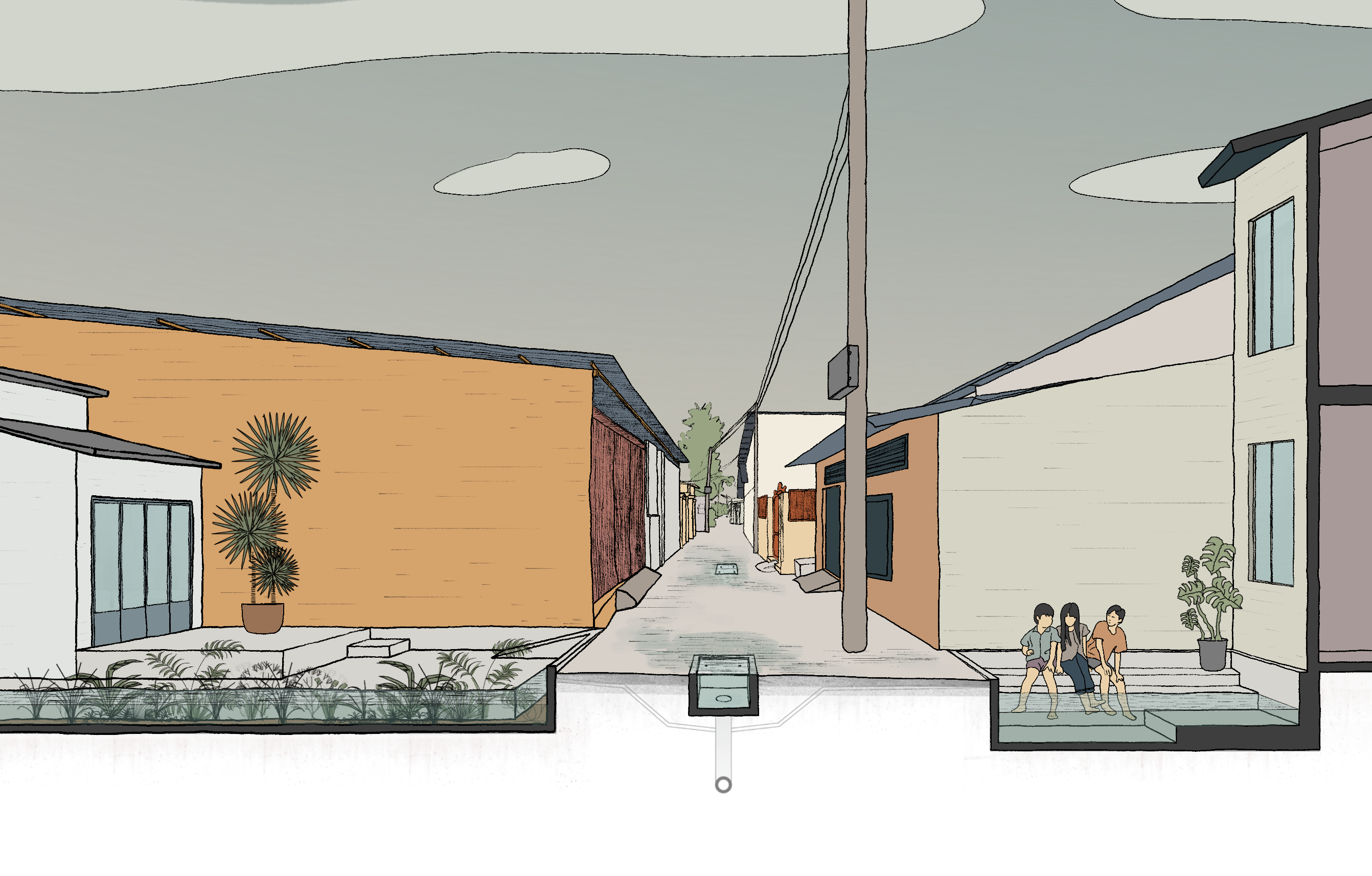RESILIENT GROUND | A Proposal for Re-Establishing Relationship Between People, Land and Water in Saigon/Ho-Chi-Minh City Amidst Urbanization and Flooding
The urban fabric of Saigon (also known as Ho Chi Minh City, HCMC) is an intense and complex layering of planning and development. It has provoked my curiosity for a long time because of its pragmatic, informal, and unpredictable development. This pragmatism has allowed people to become active participants in the process of creating a unique urban form of alleyway housing. Also known as ‘hẻm’ in the Vietnamese language, the alleyway is not only a space for traffic but also an inclusive space for different uses throughout the day. It encourages social and economic diversity for families and businesses that embody many characteristics of the city. More than eighty-five percent of Saigon/HCMC’s population lives in alleyway neighbourhoods, yet the alleyways have not been well documented.
Moreover, climate change, massive population increase and urbanization in low-lying regions within the last few decades have caused ever-increasing flash floods in overlooked alleyway neighbourhoods of Saigon/HCMC. Immense engineering projects introduced by the government to mitigate flooding have not improved the situation, while responses by local authorities, such as elevating streets and alleyways, are disrupting the spatial, social, commercial, and cultural relationships of alleyway neighbourhoods. Residents are left with little choice but to sell their homes or raise the ground floors of their houses, inevitably partaking in the unjust competition for higher ground.
This thesis aims to build a better understanding of Saigon/HCMC’s urbanism and alleyway typology and explores how architectural and urban design can be implemented at the local level to promote resilience and adaptation. The thesis will examine the alleyway typology in detail and how contemporary issues, such as flooding, are challenging it. The goal of this thesis is to question the current flood control paradigm adopted by local authorities. It will then present a concept of living with flooding, which includes different ways of creating flood-adaptive spaces in flood-prone alleyway neighbourhoods. To better adapt to flooding, residents need to understand the nature and process of flooding, accepting it as an inevitable part of urban life in a megacity rather than a hazard to be eliminated. With dense alleyway neighbourhoods making up most of Saigon/HCMC’s fabric, urban flooding needs to be addressed directly from here with the collective participation of local residents. In this way, Saigonese alleyways will become a testing ground for an emerging flood adaptation paradigm that promotes a resilient urban landscape.
The
examining
committee
is
as
follows:
Supervisor:
Elizabeth
English
Co-supervisor:
Adrian
Blackwell
Internal-external
reader
(UW
faculty
only):
Jane
Mah
Hutton
External
(non-UW
reviewers
only):
Kuei-Hsien
Liao
The
defence
examination
will
take
place:
Wednesday,
December
8th,
2021,
7:30pm
Teams
link
available
via
the graduate
student
Learn
page
or
by request.
The
committee
has
been
approved
as
authorized
by
the
Graduate
Studies
Committee.
A
copy
of
the
thesis
is
available
for
perusal
in
ARC
2106A.
